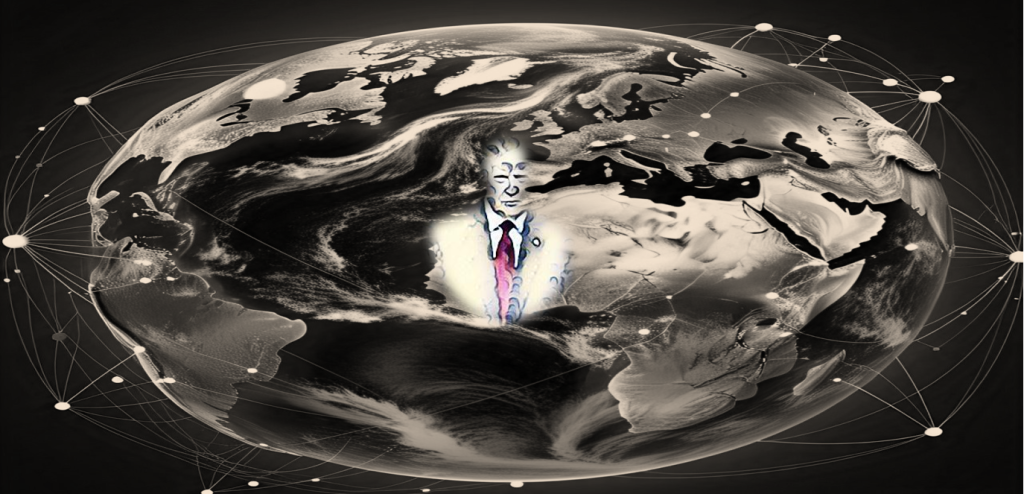What is deglobalisation?

Globalisation is a term used to describe how economies have been increasingly connected and interdependent. It is evident in the free flow of goods and services across national borders, foreign direct investments, and the formation of trading blocs.
Deglobalisation, on the other hand, is the process of reducing interdependence among countries of the world through the abolition of free trade, weakening of trade blocs, and reduction of capital flows from foreign direct investment.
Trade war
Trade war is a conflict that arises when one country adopts retaliatory measures against another that imposes trade barriers on its goods. Trade war causes a decline in global trade. For example, the USA in 2025 sparked trade wars with Mexico and Canada using import tariffs on goods coming into the USA from those countries. Mexico and Canada, which had a free trade agreement with the USA, retaliated with import tariffs on goods originating from the US. Trade war threatens trade independence and global trade.
The policies that could trigger retaliation include import tariffs, substantial subsidies to domestic firms to give them undue advantage over foreign-made goods, bans and quotas. These trade protection policies would make domestic products more competitive than imported products. It triggers retaliation from foreign countries resulting in a trade war.
What causes trade war?
International trade is not equally beneficial
Free trade creates inequality as not every country benefits equally. A country with a low cost or comparative advantage would have cheaper products that can replace domestic products, driving local industries out of business. The country with collapsing industries would want to protect them by imposing import tariffs or offering substantial subsidies to protect domestic jobs. Discriminatory tariffs make foreign products non-price competitive in the domestic market. Retaliation ensues and trade between the warring countries falls.
Abolition of free trade
Once one country puts policies in place to restrict the free movement of goods across national boundaries through protectionism, retaliation, and trade war follow. Trading partners would respond with their trade protection policies causing loss of trade between the countries involved, e.g. between China and the US in 2018.
Geopolitical rivalry
Sometimes, the root cause of igniting a trade war is geopolitics or international influence. This is not purely an economic reason but a means of having geopolitical leverage or international influence and power. The US, for example, limited exports of its semiconductors to China to reduce China’s dominance in advanced technologies like artificial intelligence (AI). Response from China causes trade war.
Often, alliances are created to benefit a few member countries to the detriment of global trade. The Fab 4 alliance, comprising top semiconductor producers of USA, Japan, Taiwan and Korea, held a meeting in 2022 to discuss how to control the export of advanced semiconductors and equipment among other things. The move, which was proposed by the US, was to reduce China’s access tp advanced semiconductors and equipment for AI and other advanced innovative emerging technologies like artificial intelligence and 5G.
The shift in national policy
Some countries are shifting the focus of their foreign policy from global to local. That means that national interest comes first in their international relations. And huge resources are being devoted to developing technology and other competencies within the country rather than specialising and depending on other countries for what they do not produce. This drive to achieve self-sufficiency is disrupting globalisation. Other countries are reciprocating leading to a trade war.
How trade war is causing deglobalisation
Trade war brings about deglobalisation by restricting free trade, foreign direct investments, international cooperation and technology transfers. Free trade has been a major driver of globalisation. A falling trade caused by a trade war reduces the interdependence of countries, resulting in deglobalisation.
As countries engage in trade wars, tensions flare up, leading to uncertainties in the business environment. These uncertainties hurt business confidence and threaten further investments. Consequently, capital flows to the warring countries are cut back and investors seek alternative destinations from where they can sell their products to the international market without tariffs.
Trade war endangers international cooperation as it tears apart trading blocs or free trade agreements. Trading blocs drive globalisation by removing tariff and non-tariff barriers to allow freer trade. Finally, technology transfers across national borders are limited, thereby stifling innovation and economic growth.